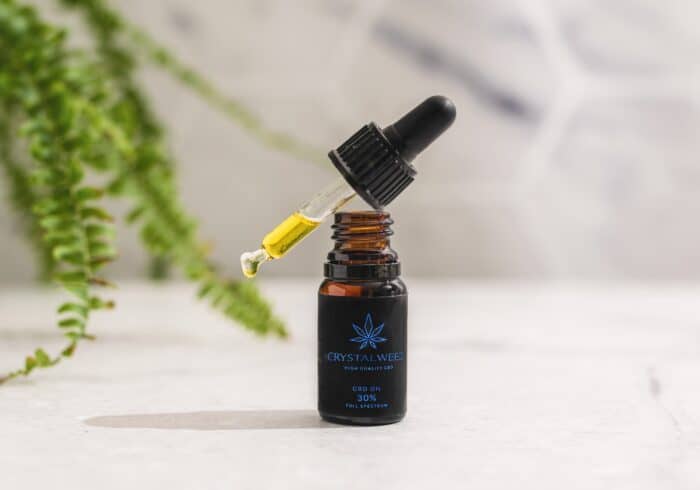Using CBD for Wellness
Cannabidiol, or CBD, is one of the many compounds found in Cannabis Sativa plants.
Unlike its more well-known counterpart, THC, CBD is not psychoactive and does not produce the “high” associated with marijuana use.
However, that doesn’t mean that it’s completely safe.
In this article, we’ll explore whether CBD is addictive and what the potential risks are.
See Also: Is Hemp Considered A Drug?
What Is CBD made of?
CBD, or cannabidiol, is a compound found in cannabis plants, and it’s often taken from the hemp variety.
Unlike THC, CBD does not produce a high or psychoactive effect.
CBD can be extracted from hemp plants and used in various products, including oils, edibles, and topicals.
It’s often touted for its potential health benefits, such as reducing anxiety and pain.
Some people also believe that CBD may help with conditions like epilepsy and cancer.
Since the mainstream use of CBD for health benefits is fairly new, more research is needed to confirm both the beneficial and detrimental health claims.
There is some concern that CBD may be addictive, but like with everything else that surrounds CBD, more research is needed to determine this.
See Also: Does Hemp Take A Lot Of Carbon Out Of The Air?

Can you get a withdrawal from CBD?
So far, CBD is considered to be a non-addictive compound.
Heavy CBD users have reported experiencing minor withdrawal symptoms when they stop taking CBD.
These symptoms are usually mild and include:
- Irritability
- Insomnia
- Headaches
If you do experience any of these symptoms after stopping CBD, they will likely go away within a few days.
Most users report having no negative side effects when they stop CBD.
CBD does have some potential side effects, including dry mouth, diarrhea, reduced appetite, and tiredness.
Some people also report feeling anxious or paranoid when taking CBD.
While CBD is generally considered safe, it is important to talk to your doctor before taking it if you are taking other medications or have health issues.
See Also: Are Hemp And Marijuana The Same Plant?
Does CBD get you mentally high?
Even though CBD, or cannabidiol, is a product of Cannabis Sativa plants that can also produce marijuana there is no THC in CBD.
Unlike THC, CBD does not produce a psychoactive effect.
This means that it will not get you “mentally high.”
What does CBD do to you?
CBD is non-intoxicating, meaning it won’t make you feel high.
But it has been shown to have potential health benefits, including reducing anxiety and pain.
But there is still much we don’t know about CBD, and it’s important to be cautious when using it.
CBD could interact with other medications and supplements you’re taking, and it’s possible that it could be addictive.
More research is needed to better understand the potential risks and benefits of CBD.
See Also: The Truth About Hemp Protein Powder For Fitness & Diet
Can CBD be used every day?
CBD is becoming increasingly popular as a natural remedy for a variety of issues.
While CBD is generally considered safe to use daily, it’s important to remember that it can interact with other medications and substances in the body.
It’s also possible that CBD could be addictive for some people, so it’s important to use it safely.
Here are a few tips for using CBD safely:
- Start with a low dose and increase gradually as needed.
- Be aware of how CBD affects you before driving or operating machinery.
- Avoid using CBD if you’re pregnant or breastfeeding.
- Talk to your doctor before taking CBD if you have any medical conditions or are taking any other medications.
- Do not use CBD if you’re struggling with substance abuse.
If you’re considering using CBD, it’s important to do your research and talk to your doctor to make sure it’s right for you.
When used safely, CBD can be a helpful addition to your wellness routine.
Have any more questions about CBD being addictive? Leave a comment below.

